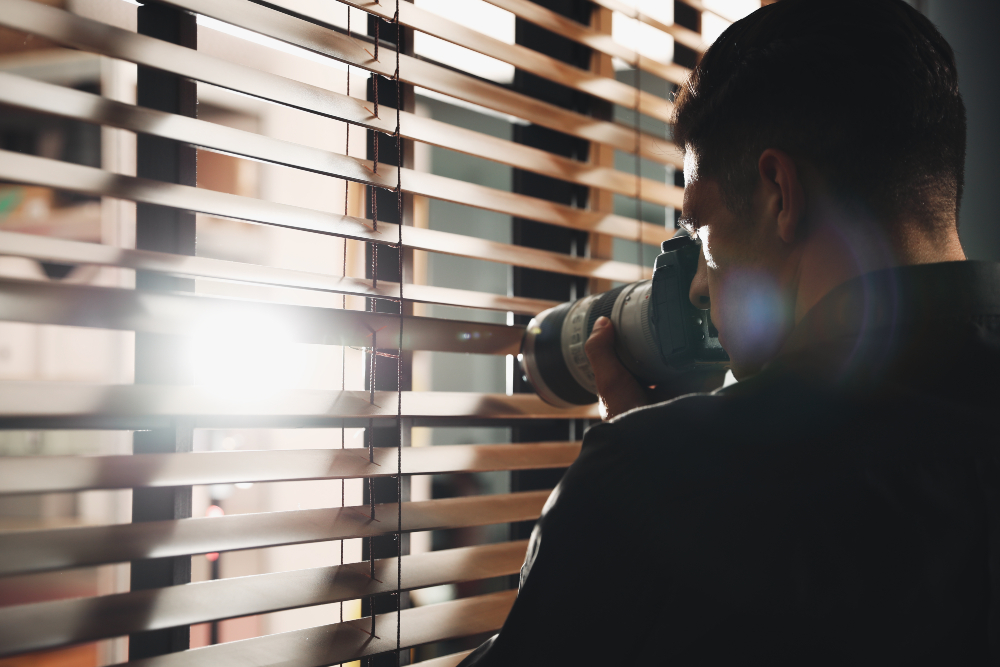
What to Know About Florida’s Peeping Tom Laws
When an individual watches or ‘peeps’ into a home or otherwise non-public area to observe someone without their knowledge, they are committing the ‘Peeping Tom’ crime known as voyeurism. In Florida, the law clearly defines illegal acts of varying forms of voyeurism and the penalties one may face if they are up against these charges.
Often, the prosecution can vaguely misconstrue the circumstances and situation involving a voyeurism crime, and the penalties of this conviction are governed by burglarizing and trespassing laws. Orlando criminal defense attorney Thomas Fighter, at Fighter Law, is board certified and seasoned in defending clients facing a voyeurism charge in a Florida courtroom.
Defining a ‘Peeping Tom’ According to Florida Law
Looking into someone’s home or another means of property where individuals are unknowingly being watched, and there is an expected level of privacy is illegal. According to Florida statute 810.14, voyeurism, also known as a ‘peeping tom’ crime, is committed when an individual:
“…with lewd, lascivious, or indecent intent: (a) Secretly observes another person when the other person is located in a dwelling, structure, or conveyance and such location provides a reasonable expectation of privacy. (b) Secretly observes another person’s intimate areas in which the person has a reasonable expectation of privacy, when the other person is located in a public or private dwelling, structure, or conveyance…”
Voyeurism crimes are ultimately an invasion of privacy since the act is done secretively and with indecent intent. However, the circumstances surrounding the accusation can widely influence the intentions of the person being accused of this crime. Since there are different types of voyeurism charges, it is crucial to understand the differences between them.
What Are the Different Types of Voyeurism Crimes?
Voyeurism is not only defined by observing other individuals and intimate parts but may also include the use of a camera, photographs, video recording, or capturing images beneath a woman’s skirt or dress. Typically, a lawyer may beat ‘Peeping Tom’ criminal charges with an experienced strategy. There are different forms of this crime, and the prosecution may use the physical evidence, intent, and nature of your actions to determine an innocent or guilty verdict.
Different types of voyeurism are listed under Florida law:
- Voyeurism
- Video voyeurism
- Video Voyeurism Dissemination
- Commercial Video Voyeurism
- Types of Video Voyeurism Involving Certain Aged Minors
At times, individuals are accused of committing these crimes by people they are not familiar with or by family members and other people they are acquainted with, depending on the circumstances. If someone you know is accusing you of voyeurism, the prosecution may try to relate the crimes to revenge porn or sexual cyberharassment case. Additionally, when children are involved, the penalties you may be up against are severe.
What Does the Prosecution Need to Prove a Voyeurism Charge?
If you are accused of observing another person who is unknowingly being watched or capturing images or video of an individual’s intimate areas and undergarments without their knowledge, you may face a voyeurism charge.
When the prosecution presents criminal charges and Voyeurism claims against you, they must prove:
- You secretly observed the victim
- You had lewd, indecent, or lascivious intent
- The individual was being watched while in a setting or place of expected privacy
Without this evidence in a courtroom, the charges may be dismissed. Florida law also defines lewd, indecent, or lascivious intent as any lustful or sensual acts. In video voyeurism cases, the charges may become more complex if an individual intends to distribute or sell the images and recordings of voyeuristic acts. However, an attorney knows the law and understands how cases may be misconstrued due to a lack of foundation and solid evidence.
Statute of Limitations for Video Voyeurism Crimes
Criminal cases involving voyeurism, specifically video voyeurism, have a statute of limitations. The accuser must commence the charges against the accused within one year of having knowledge or discovery of such videos or images. However, law enforcement may make an arrest if an individual is found with illegal images and videos portraying lewd or indecent voyeuristic acts. In these cases, the evidence is confiscated, and the accused has the right to seek an attorney for legal help and representation.
Fight Voyeurism Allegations With a Board-Certified Orlando Criminal Defense Attorney
Fighting for the best results in a sexually-motivated crime can be challenging, especially if the prosecution has physical evidence. Although, our board-certified criminal defense attorney has years of experience in defending clients facing sex crime charges and other criminal offenses. Our team is available and understanding in any situation. We can review your case and may be able to provide the evidence and legal resources that help you receive the best outcome for your future.
We care about our clients at Fighter Law, and our Spanish-speaking lawyer may provide the aggressive and knowledgeable legal representation your case needs to fight the prosecution’s claims. Complete a contact form or give us a call at (407) 344-4837 to schedule your free case review.
Share:
free case evaluation
Fill out the form below for an free evaluation of your case.
Categories
- Birth Injury
- Boating Accidents
- Car Accidents
- Civil Rights
- Criminal Defense
- Cyberstalking
- Divorce
- Dog Bite Injury
- Domestic Abuse Charges
- Domestic Violence
- Drug Charges
- DUI Charges
- Family Law
- Felonies
- Fighter Law Firm
- Firearms
- Firm News
- Guardianship
- Injunction Removal
- Injunctions
- Marketing
- Personal Injury
- Repeat Violence Injunction
- Restraining Order
- Seal and Expunge
- Sex Crimes
- Slip and Fall
- Stalking Injunction
- Theft and Robbery
- Theme Park Trespasses
- Traffic tickets
- Uncategorized

